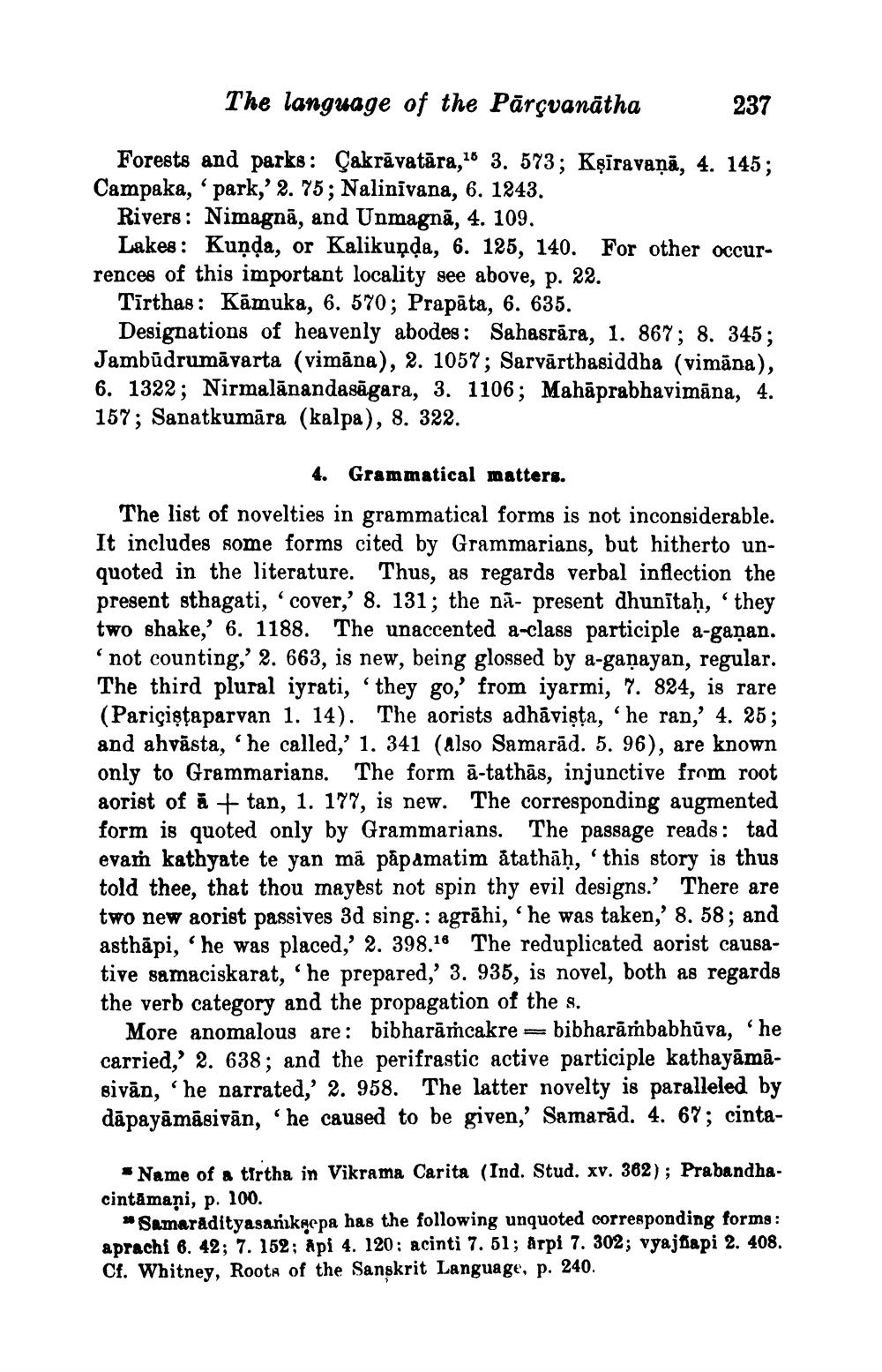________________
The language of the Parçvanātha
Forests and parks: Çakrāvatāra,16 3. 573; Kṣiravaṇā, 4. 145; Campaka, 'park,' 2. 75; Nalinīvana, 6. 1243. Rivers: Nimagna, and Unmagnā, 4. 109.
Lakes: Kunda, or Kalikunḍa, 6. 125, 140. For other occurrences of this important locality see above, p. 22.
Tīrthas: Kāmuka, 6. 570; Prapata, 6. 635.
Designations of heavenly abodes: Sahasrara, 1. 867; 8. 345; Jambūdrumāvarta (vimana), 2. 1057; Sarvarthasiddha (vimāna), 6. 1322; Nirmalanandasagara, 3. 1106; Mahaprabhavimāna, 4. 157; Sanatkumāra (kalpa), 8. 322.
237
4. Grammatical matters.
6
"
The list of novelties in grammatical forms is not inconsiderable. It includes some forms cited by Grammarians, but hitherto unquoted in the literature. Thus, as regards verbal inflection the present sthagati, cover,' 8. 131; the na- present dhunitaḥ, they two shake,' 6. 1188. The unaccented a-class participle a-ganan. 'not counting,' 2. 663, is new, being glossed by a-ganayan, regular. The third plural iyrati, 'they go,' from iyarmi, 7. 824, is rare (Pariçiṣṭaparvan 1. 14). The aorists adhāvista, he ran,' 4. 25; and ahvasta, he called,' 1. 341 (also Samarad. 5. 96), are known only to Grammarians. The form ā-tathās, injunctive from root aorist of a tan, 1. 177, is new. The corresponding augmented form is quoted only by Grammarians. The passage reads: tad evam kathyate te yan ma papamatim atathāḥ, 'this story is thus told thee, that thou mayest not spin thy evil designs.' There are two new aorist passives 3d sing.: agrahi, 'he was taken,' 8. 58; and asthāpi, 'he was placed,' 2. 398.18 The reduplicated aorist causative samaciskarat, 'he prepared,' 3. 935, is novel, both as regards the verb category and the propagation of the s.
More anomalous are: bibharaṁcakre bibharāmbabhūva, 'he carried,' 2. 638; and the perifrastic active participle kathayāmāsivan, he narrated,' 2. 958. The latter novelty is paralleled by dāpayāmāsivān, he caused to be given,' Samarad. 4. 67; cinta
1
Name of a tirtha in Vikrama Carita (Ind. Stud. xv. 362); Prabandhacintamani, p. 100.
"Samaradityasanikgepa has the following unquoted corresponding forms: aprachi 6. 42; 7. 152; api 4. 120: acinti 7. 51; arpi 7. 302; vyajñapi 2. 408. Cf. Whitney, Roots of the Sanskrit Language, p. 240.




